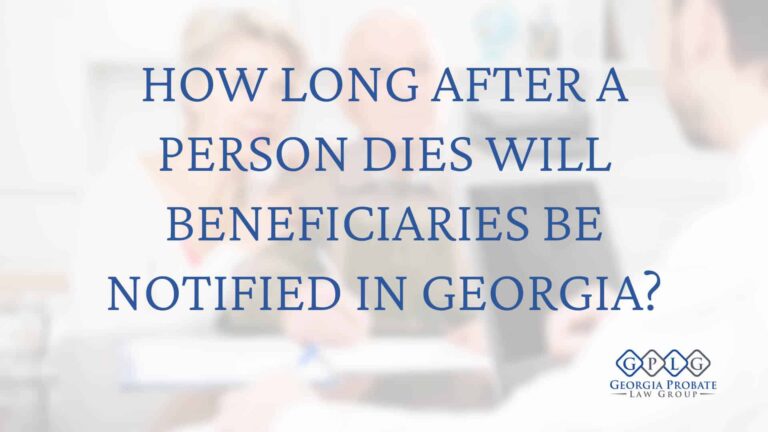What can you do when there is a family property in a grandparent’s name, but nothing has been done? How to get heir property in your name? These situations can be very tricky, especially if the grandparent passed away a long time ago and other relatives have passed away afterward.
This situation is sometimes called heir property (also known as heirs’ property or heirs property).
We will dive deeper into this topic, highlighting some potential issues that might arise between the legal heirs and the potential solutions.
What Is Heir Property?
Heirs’ property is a term that usually arises when a property has been transferred from one generation to the next one, typically without probate occurring.
One of the most common situations refers to the family land or the inherited house transferred from a deceased person to their spouse, children, and other heirs who have the legal right to inherit that property.
However, there are also situations when, even if a decedent left a will, they could still create heir property if they leave their house or land to multiple heirs without specifying who receives the legal ownership.
Moreover, unless the heirs go to the appropriate probate court in their jurisdiction and change the title or deed to the estate to reflect their ownership, that property remains in the name of the late person.
Heir Property Rights and Implications
Because the deceased person’s property is not particularly passed to the living descendants in a well-defined way, they don’t have a clear title to a specific share of the property.
As a result, the property’s ownership generally becomes highly fragmented, with multiple heirs taking over but none having a clear title to the property.
Each of the deceased’s descendants (heirs) has the equal rights to:
- Attempt to open probate to settle the estate.
- Seek a partition of the property (if necessary).
As no one has full ownership of the deceased’s property, below is a list of potential implications that could arise (but are not limited to):
- Each heir might face an increased risk of forced sale or eviction.
- None of the heirs can sell or mortgage property without the other heirs’ consent unless there is a court order stating otherwise.
- Due to potential disagreements, family relationships might be permanently ruined.
- Tax overpayment – the heirs might not be eligible to take advantage of homestead credits, even if they live on the property and pay all the property taxes individually.
- Risk of tax sale – any family member using the property or housing on the property might face difficulties paying the assessed taxes. If the property taxes are not paid, then the property could be at risk of being sold for non-payment of taxes.
How to Transfer Heir Property Into Your Name in Georgia
When someone dies, their assets and real properties pass to their heirs or beneficiaries, typically through a probate process.
When discussing how to get heir property in your name, you should be aware that a decedent’s property passes to the heirs and beneficiaries in a few ways:
- According to the deceased’s will (if the decedent left one).
- Per intestate law (if there is no will).
Identify the type of property ownership
Before transferring the inherited property in your name, you have to determine the types of property inheritance (solo owner or multiple co-owners, such as tenants in common or joint tenancy).
This way, you understand your legal status and the steps you must take (such as addressing co-owners or resolving joint ownership rights) to successfully update the property deed and become the sole owner of the real property.
Identify heirs (Intestate succession law)

When there is no will, Georgia intestate laws dictate how the deceased’s assets are divided among the surviving relatives.
When multiple generations are involved, you should hire an attorney to help you identify all the current living owners.
Here is a breakdown of the order of the inheritance rights when there is no will:
- The deceased has a surviving spouse and children – all of them inherit, but the spouse receives at least 1/3 of the decedent’s estate. Please note that a year’s support claim could affect the inheritance amount that the spouse and children would receive.
- The deceased has children and a surviving spouse – the property goes to the children. Grandchildren inherit the deceased child’s share.
- The decedent’s parents both predeceased the decedent- the estate goes to their siblings; nieces/nephews inherit a deceased sibling’s share.
- The decedent has no parents – the estate goes to their siblings; nieces/nephews inherit the deceased sibling’s share.
Gather documents
You must gather all the needed documents to legally transfer the inherited property in your name.
When the late person dies testate, you’ll need to submit the decedent’s last will and testament and a copy of their death certificate to the probate court to appoint an estate executor and open the probate process.
Georgia intestacy law applies when the deceased doesn’t leave any will, usually using the next-of-kin designation to determine beneficiaries and distribute the assets accordingly.
In this situation, we recommend creating a family tree to help identify as many heirs as possible. You should start with the original landowner(s) and provide a list of all their children. If any of these children have died, get a list of their children and so on until you reach the current living family members.
For each individual, you should include:
- Date of birth.
- Date and place of death.
- If deceased, provide the name of the surviving spouse and the date of marriage.
- Name of all their children.
- If alive, address and contact information of the actual living heirs.
Conceive a new deed
During the distribution phase of the probate process, a new deed may be drafted, including all the details of the property you have inherited. We strongly recommend that you have an experienced probate attorney assist you with the execution of a new deed.
How To Get Heir Property In Your Name Without A Will

You could transfer an heir’s property in your name in several ways.
One method could be the quitclaim deeds, which means the other co-owners of the inherited property quit their claim on property.
Unfortunately, that solution does not always work out as well as intended. For the issue to be effective, you must be absolutely sure you have identified and obtained a quitclaim deed from every relative who could possibly have an interest.
Things are further complicated if any of the deceased relatives had a will because then you must also consider the beneficiaries of that will, whether they are family members or not.
As a result, while using quitclaim deeds seems simple, they do not get the job done and can cause additional problems.
However, the best practice is to walk through the situation step by step, heir by heir, and open the estate of each deceased relative.
Partition action
When looking to find out how to get heir property in your name without a will or when there is a will, another way would be to file a partition, requesting the court to order a partition action. This would only be an option if the property has already gone through the probate process.
According to partition law, the judge can order a partition in kind or a partition sale.
Partition in kind means that, if feasible, the property is physically divided between the co-owners. In this case, you could buy the other heirs’ property shares and become the legally designated owner of that land or house.
Partition by sale means that if the physical division is impractical or impossible, the property is sold at a fair market value, and proceeds are distributed among co-owners based on their shares. When this happens, you could buy the deceased property and transfer it into your name.
Who Pays Taxes on Heirs’ Property?
To ensure that the property is not sold at a tax sale, any heir may pay taxes on the property, even if that heir does not live in that house or use that land.
However, the heirs might decide together how the taxes will be paid. They could agree, for example, that one person would pay all the taxes for the heirs’ property in exchange for a larger share of the asset or another financial arrangement.
It is best to have an attorney assist you if there is an agreement between the heirs on how this is going to be handled to ensure that all agreements are binding.
Can Heir Property Be Sold?
Yes, the heir’s property can be sold. However, there may be two situations when it could happen:
- When all the heirs agree to sell that entire property.
- When not all heirs consent to the selling.
Each situation having its own particularities.
Do all heirs have to agree to sell property in Georgia?
When the deceased’s property is still an heirship property, it means all heirs hold a legal interest in it.
To avoid potential complications and extension of the selling timeframe, it would be ideal if all the decedent’s heirs agreed to sell that house or property. In other words, the heirs’ consent should be unanimous.
We advise hiring a probate attorney to help you with the most productive strategy for your specific situation.
Can You Build a House on Heir Property?
We recommend speaking with a probate attorney before deciding to build a house on heirs’ property.
This is because building on the land without the proper court authorization could lead to potential problems, disputes, and legal complications.
Separately, you must ensure compliance with building codes, local zoning, and permit requirements.
Next Steps
For more information about how to get heir property in your name and other probate topics, please go to our Georgia Probate Handbook page to download your copy. You’ll learn the key things that go wrong in an estate, how to prevent them, and what to do if they happen. You can also contact our office at (770) 796-4582 to set up a consultation.
More information
Disclaimer These websites have not been reviewed by Georgia Probate Law Group and are not endorsed or even recommended by Georgia Probate Law Group. These websites are additional resources that you can use to further your general education on this topic.
Disclaimer: The information above is provided for general information only and should not be considered legal advice. Our probate attorneys provide legal advice to our clients after talking about the specific circumstances of the client’s situation. Our law firm cannot give you legal advice unless we understand your situation by talking with you. Please contact our law office to receive specific information about your situation.



























